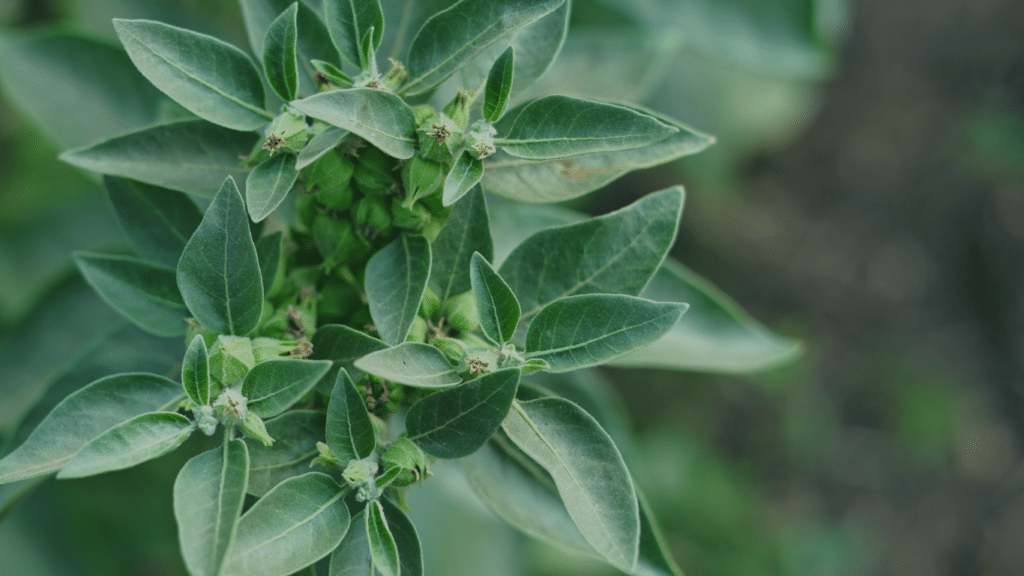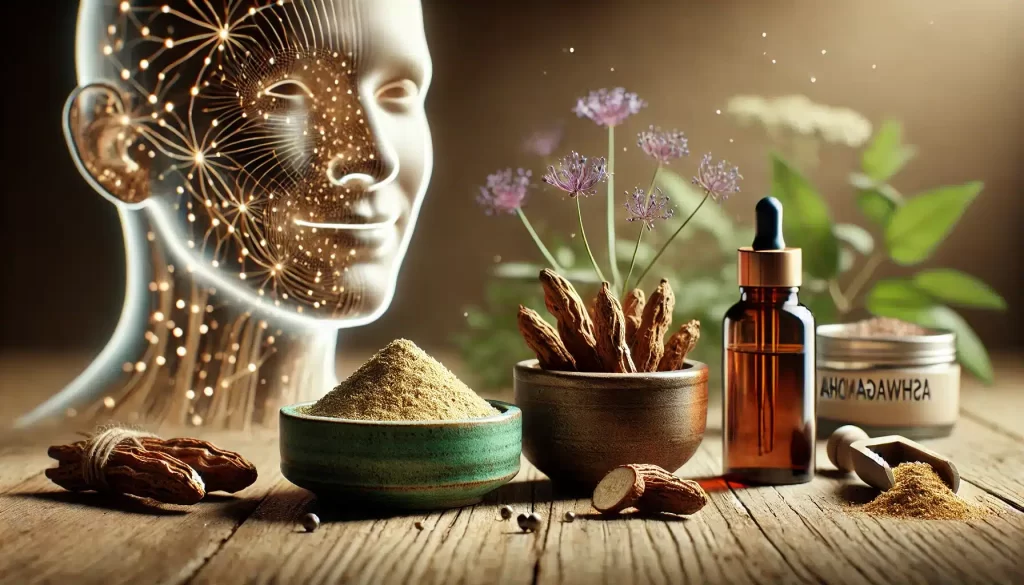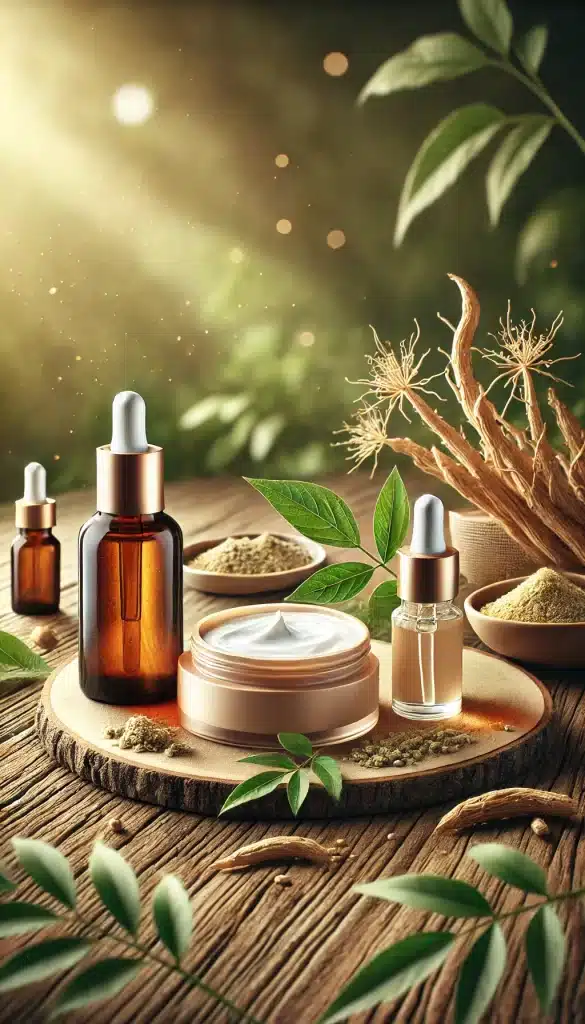written by: Allison Goins, Ph.D. | Published on December 14th at 6:00 am
In the skincare world, brands constantly look for the next miracle ingredient. And natural ingredients have become the shining stars of many product launches, claiming powerful results with a gentle touch. One such ingredient gaining attention is ashwagandha—an ancient herb known for its adaptogenic properties. But can ashwagandha really deliver benefits for your skin, or is it just another buzzword in beauty marketing? Let’s dig into the science of the ashwagandha benefits for skin, explore its uses, and uncover how this herb could support your skin health.
What Is Ashwagandha?
Ashwagandha, scientifically known as Withania somnifera, has been a cornerstone of Ayurvedic medicine for over 3,000 years. Native to India, North Africa, and the Middle East, this adaptogenic herb has been traditionally used to reduce stress, improve energy levels, and promote overall health. Its name, which translates to “smell of the horse” in Sanskrit, comes from its earthy aroma and the strength it’s believed to impart.

When it comes to skincare, ashwagandha is often praised for its high concentration of antioxidants, alkaloids, and withanolides. These compounds are thought to calm inflammation, support skin repair, and combat signs of aging. But are these claims backed by science?
The Science Behind The Ashwagandha Benefits For Skin
Emerging research is shedding light on ashwagandha’s potential as a topical skincare ingredient. While there is still only a handful, these studies are laying the foundation for science supporting the ashwagandha benefits for the skin. Clinical studies are starting to confirm what traditional Ayurvedic practitioners have long believed—that this herb can work wonders for the skin.
One randomized, double-blind study found that an 8% ashwagandha root extract lotion significantly improved skin hydration, elasticity, and reduced transepidermal water loss (the skin losing too much moisture) in individuals with photoaged facial skin. In simpler terms, it helped combat the visible effects of aging while strengthening the skin barrier. One important thing in this study was standardizing the cream to contain 5% of the withanolides, which have potent antioxidant activity. By helping prevent cellular damage, they showed the anti-aging ashwagandha benefits for skin.
Related Post: Understanding the Science Behind Aging in Skin: Tips for Youthful Glow
A common criticism and limitation of plant extracts in skincare is the differences in actives concentration from plant to plant. Ideally, brands that are using botanical-based actives would do something similar to these scientists to ensure their customers are getting an effective amount of their hero ingredient.
But how does Ashwagandha do this? Free radicals are unstable molecules that form skin. They can come from pollution, UV rays, and other environmental stressors. They are one of the main culprits behind premature skin aging because they kill skin cells and break down important skin proteins like collagen and elastin. Ashwagandha is rich in antioxidants, which help neutralize free radicals and reduce oxidative stress.
Related Post: Antioxidants in Skincare, What Are They and What Do They Do?
And for fans of multitasking formulations, ashwagandha also shines in formulations with other ingredients. A clinical study featuring a blend of sodium hyaluronate, niacinamide, and ashwagandha extract reported significant improvements in skin hydration, tone, and firmness after four weeks of use. Additionally, research has demonstrated that ashwagandha’s antibacterial and antifungal properties may help protect the skin from microbial imbalances, which can lead to acne breakouts or irritation.

These studies are laying a foundation for the scientific backing of ashwagandhas benefits for skin. As well as cementing ashwagandha as a safe and effective botanical active for topical skincare products. It offers benefits for hydration, skin barrier repair, anti-aging, and even microbial protection. While ashwagandha is a promising ingredient, not all products are created equal. Look for formulations with clinically studied concentrations of ashwagandha extract to ensure you’re getting a product that works. The best products are the ones that have their own clinical data backing up their claims.
How to Take Advantage of Ashwagandhas Benefits for Skin Into Your Skincare Routine
If you’re ready to try ashwagandha for your skin, here are a few tips to get started:
Don’t Just Pick Any Product With Ashwagandha…Choose the Right Product
Look for serums, creams, or masks with ashwagandha as a featured ingredient and that have clinical data to back them up. For a little bit of assurance, products that combine it with other more established ingredients, like hyaluronic acid or niacinamide, can amplify its effects.
Patch Test Any New Product First
As with any new skincare product, do a patch test before applying it to your face. Although ashwagandha is generally well-tolerated, everyone’s skin reacts differently.
Use It Consistently To See The Ashwagandha Benefits for Skin
Like most skincare ingredients, the ashwagandha benefits for skin take time to appear. Use your chosen product consistently for at least four to six weeks to see noticeable results.

At Least Use Your Ashwagandha Product During the Day
Antioxidants are a great way to give your skin an added layer of protection. In most studies, the products were used in the morning and evening. If you can do this without getting routine fatigue, that’s great. However, if you want to simplify your routine and make the most out of the ashwagandha, use it in the morning before putting on sunscreen.
Always Wear Your SPF
Ashwagandha’s antioxidants can protect your skin from environmental damage, but they’re no substitute for sunscreen. Always wear SPF during the day to maximize your skin’s protection.
Final Thoughts
Ashwagandha is more than just a trendy buzzword—it’s a powerful natural ingredient with real benefits for the skin. From fighting free radicals to helping keep your skin hydrated, its properties can make it a valuable addition to any skincare routine.
Remember to check the ingredient list and look for evidence-backed formulations when searching for products. With a solid skincare routine and healthy habits, ashwagandha could help you achieve the glowing, resilient skin you’re after.

2 Comments